Report on IEEE Compeng 2024
The seventh edition of IEEE Compeng 2024 took place from 22-24 July in Florence, Italy. This marks the third consecutive edition hosted at the Galileo Galilei Institute for Theoretical Physics, situated in the historic “Antonio Garbasso” building, the former site of the Physics Institute of the University of Florence. This location holds significant historical value, as it was here in 1926 that Enrico Fermi discovered the famous Fermi-Dirac statistics.
We are pleased to report that the conference saw 85 registered participants, along with 4-5 online contributions, which is particularly notable given that the event was primarily organized as an inperson gathering. The steady increase in participants over the last three editions at the Galileo Galilei Institute underscores the growing importance of complexity in science and engineering.
This year’s conference featured a wide range of disciplinary sessions, including machine learning, complex networks, engineering methods and applications, data analysis, nonlinear dynamics, remote monitoring, and laser dynamics and optics. Notably, two invited sessions garnered significant attention: "Dynamics of Neural Networks from Single Neuron to Collective Behaviors,” organized by Simona Olmi, and "Chaos and Complexity Across Neural and Nonlinear Electronic Systems," organized by Ludovico Minati. These sessions were highly successful and wellattended.
The plenary speakers, including S. Boccaletti, G. Biroli, L. V. Gambuzza, and M. Mattia, delivered outstanding presentations that covered a diverse range of topics, such as synchronization in dynamical systems, generative AI, experiments on synchronization in micro-robots, and population dynamics in networks of spiking neurons. Their talks highlighted the unifying nature of complexity science, bridging seemingly disparate disciplines, and underscored the increasing significance of AI and machine learning in this field.
A special highlight of the conference was the visit to Villa “Il Gioiello” on 23 July 2024, where Galileo Galilei spent his final years before passing away in 1642. The social dinner was also held at this historic location, providing attendees with a memorable experience that combined scientific discourse with a deep appreciation of the rich history of science in Florence.
In conclusion, IEEE Compeng 2024 was a resounding success, reflecting the vibrant and interdisciplinary nature of complexity science and its applications across various fields. We look forward to the continued growth and impact of this conference in the years to come.
In the following we include some pictures taken during the conference.


Reported by
Francesca Di Patti and Riccardo Meucci
__________________________________
IEEE Chongqing Artificial Intelligence, Electronic Information and Sensor Technology International Forum

From November 21st to 23rd, the IEEE CASS Chongqing Chapter, IEEE SSCS Chongqing Chapter, IEEE EMBS Chongqing Chapter, IEEE EDS Chongqing Chapter, and IEEE Photonics Chongqing Chapter have jointly organized the inaugural “IEEE Chongqing Artificial Intelligence, Electronic Information and Sensor Technology International Forum” with the support from the the Micro-Nano Manufacturing and System Integration Research Center of Chongqing Green Intelligent Technology Research Institute of the Chinese Academy of Sciences, the Chinese Association for Artificial Intelligence Haizhi Expert Service Team, the Haizhi Workstation of the Chongqing Graphene Research Institute Co., Ltd., and the Chongqing Functional Materials Society. We have the opportunity to get the local government support by the Science and Technology Bureau of Beibei District, Chongqing.
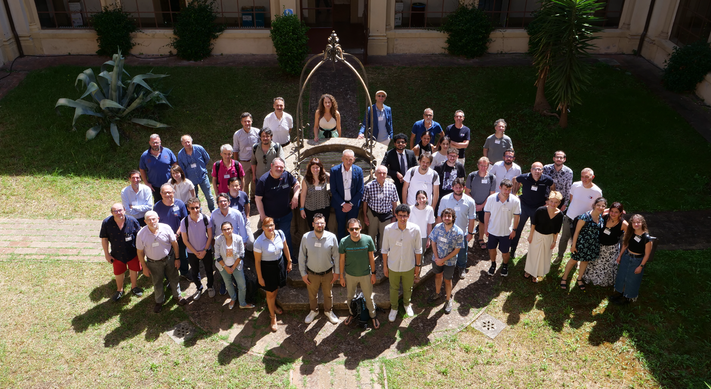
The opening ceremony was inaugural by Zhipeng Xu, Deputy Secretary of the Party Committee of the Science and Technology Bureau of Chongqing, Shuhuang Wu, Secretary of the Party Committee and Director of the Science and Technology Bureau of Beibei District, and Yongbo Chen, Deputy Secretary of the Party Committee of the Chongqing Green Intelligent Technology Research Institute of the Chinese Academy of Sciences.
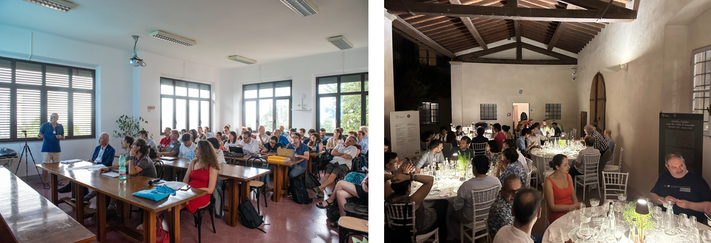
Under the theme of “Smart Beibei, Co-creating the Future - IEEE Facilitating the Integration and Innovation of Artificial Intelligence, Electronic Information, and Sensing Technology,” the forum has gathered more than 120 attendees. The participants shared the achievements of interdisciplinary development, discussed the future industrial development of artificial intelligence, electronic information, and sensing technology, and jointly promoted technological innovation and industrial upgrading in related areas of Beibei District.
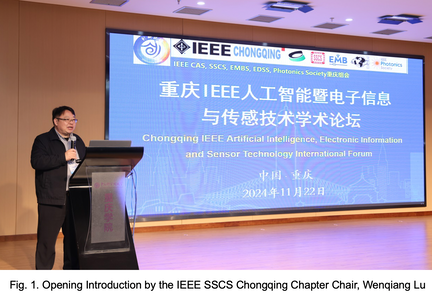
The opening ceremony was presided over by Wenqiang Lu, Chair of IEEE SSCS Chongqing Chapter, Vice-Director of the Micro-Nano Manufacturing and System Integration Research Center of the Chongqing Green Intelligent Technology Research Institute of the Chinese Academy of Sciences. They expressed gratitude to the guests for their attendance and support for the forum and emphasized the importance of the rapid development stage of artificial intelligence, electronic information, and sensing technology in promoting technological progress, industrial upgrading, and societal intelligence. Yongbo Chen introduced the research achievements and contributions of the Chongqing Green Intelligent Technology Research Institute of the Chinese Academy of Sciences in related fields and expressed the institute’s commitment to increasing research investment to promote technological innovation and results transformation. Zhipeng Xu introduced the policies and measures of Chongqing in scientific and technological innovation and expressed active support for research and development in related fields to provide strong support for industrial upgrading. Professor Yongfu Li analyzed the global development trends of artificial intelligence, electronic information, and sensing technology from an international perspective and encouraged participants to strengthen international cooperation and exchanges to jointly promote technological advancement and application.
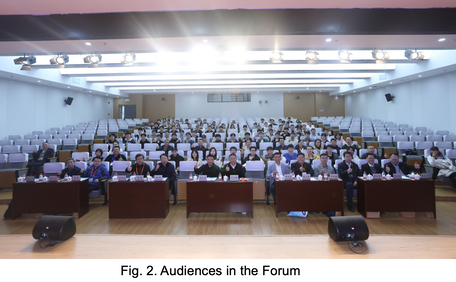
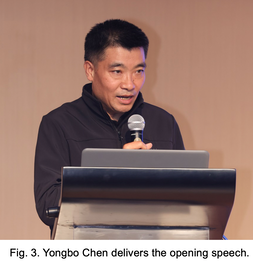
At the same time, the new term of the IEEE Chongqing Chapters’ Committee was inaugurated. Wenqiang Lu, Zhiyong Luo, Ziwei Pan, U-Fat Chio, Guanyu Wang, Miao Li, Yingtao Xie, Min Tian, Junchao Wang and Cong Shi were appointed as members of the new term of the IEEE Chongqing Chapter Committee, marking the further strengthening of IEEE’s organizational strength in the Chongqing region.
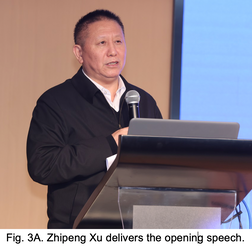
The forum was chaired by U-Fat Chio, the Organizing Chair and the Chair of the IEEE CASS Chongqing Chapter. Professor Yongfu Li from Shanghai Jiao Tong University and Professor Zeljko Zilic from McGill University in Canada delivered keynote speeches on “Revolutionizing healthcare: the role of wearable sensors, electronic technology, and IEEE standards” and “From body area networks and blockchain to cyborgs: systems with humans in many machine interactions,” respectively. Professor Arshad Hussain from Zhejiang University in Pakistan, Associate Research Professor Shuangming Yu from the Institute of Semiconductors, Chinese Academy of Sciences, Professor Yu Pang from Chongqing University of Posts and Telecommunications, and Dr. Bohua Yin from the Chongqing Green Intelligent Technology Research Institute of the Chinese Academy of Sciences delivered invited speeches on “Power reduction techniques for sensor in nanometer CMOS,” “Optoelectronic integration artificial intelligence visual chip,” “Emergency Internet of Things system architecture,” and “Directly characterizing the capture radius of tethered double-stranded DNA by single-molecule nanopipette manipulation,” respectively, providing a professional, forward-looking, and high-level academic feast for all participants.
The inaugural Chongqing IEEE Artificial Intelligence, Electronic Information and Sensor Technology International Forum, which successfully took place in Beibei District, marked the beginning of a platform that not only provided domestic and international scholars with an opportunity to showcase research achievements and exchange academic ideas but also injected new vitality into the application and industrialization of artificial intelligence, electronic information, and sensing technology in Chongqing, China.
Reported by
U-Fat Chio and Wenqiang Lu